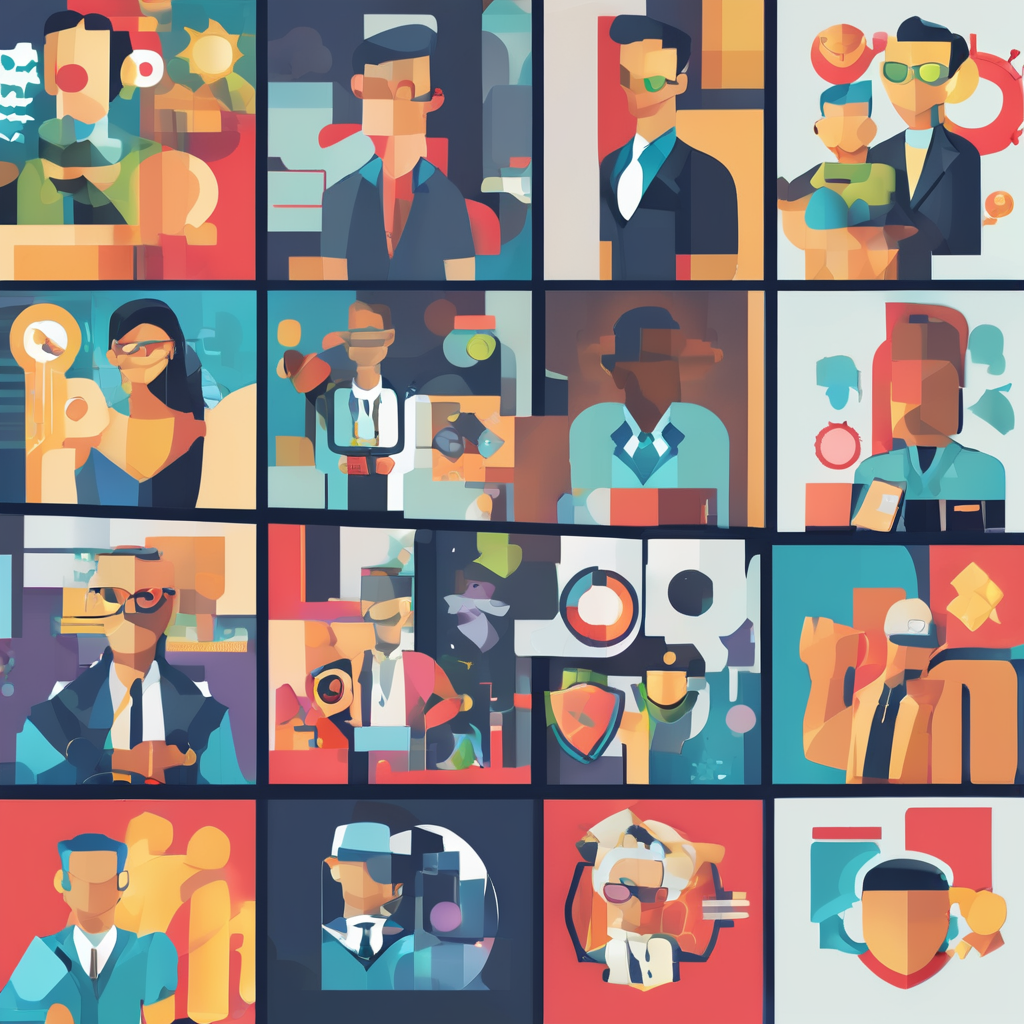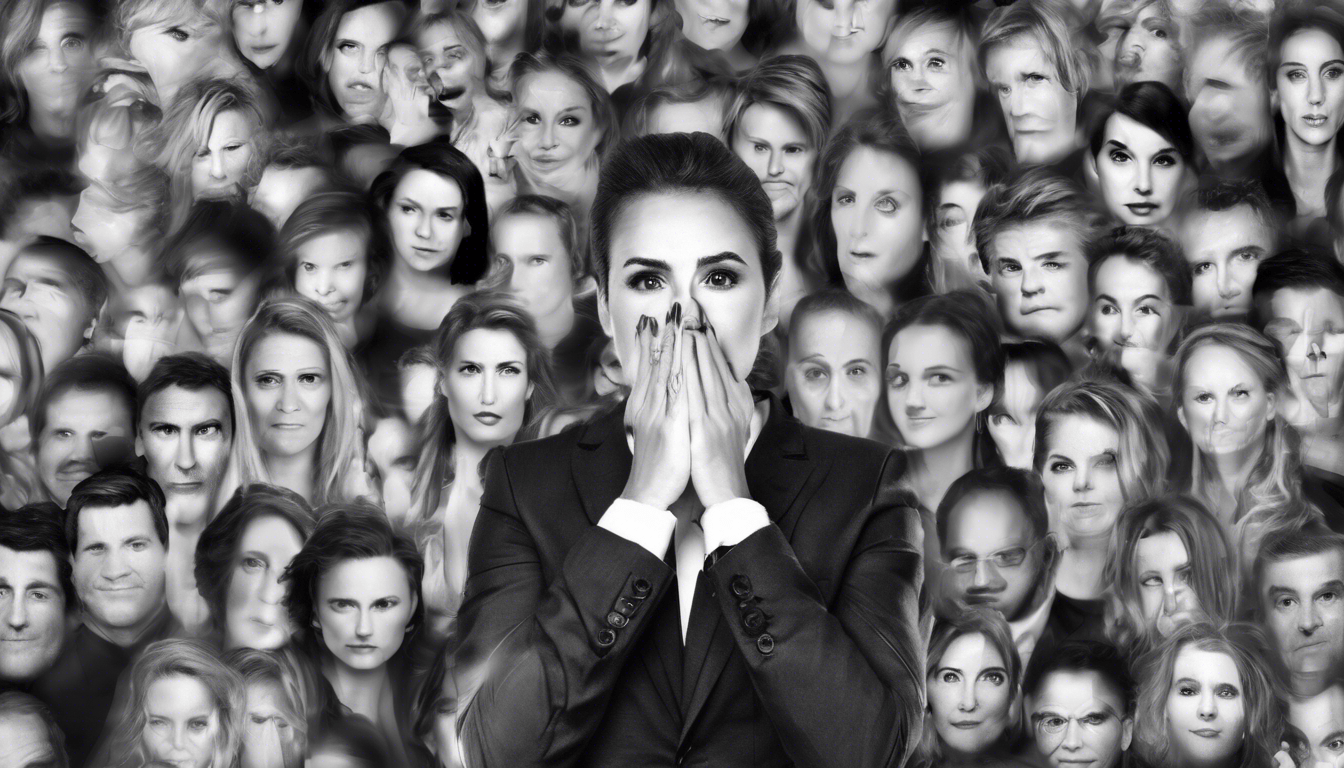Many celebrities bravely share their struggles with anxiety, transforming personal battles into powerful messages of hope. Their openness not only humanizes their public images but also sparks vital conversations about mental health. By examining their journeys, we gain insight into effective coping strategies and the profound influence these disclosures have on destigmatizing anxiety, inspiring countless fans to seek support and fostering a broader societal shift towards greater understanding and acceptance.
Overview of Celebrities Openly Discussing Anxiety
Celebrities openly discussing anxiety have played a crucial role in raising public awareness and reducing stigma. When public figures share their experiences, they humanize mental health struggles, making anxiety more relatable and less mysterious. This transparency encourages others to seek help and feel less isolated.
Topic to read : Transforming recovery: how art therapy empowers healing from eating disorders
The impact of their openness is especially significant on social media platforms and through personal interviews. These channels allow celebrities to reach millions, providing real-time engagement and authentic storytelling. For example, heartfelt interviews often reveal the severity and complexity of anxiety, showing it is not merely occasional worry but a serious condition affecting daily life.
Moreover, public conversations initiated by celebrities help reshape societal attitudes. When well-known personalities discuss their coping strategies and treatments candidly, it validates the experiences of many and promotes understanding. This creates a supportive environment where talking about anxiety becomes normalized and encouraged.
Also read : Travel friendly nicotine solutions: discreet and effective options
Discussions by celebrities also educate the public on recognizing symptoms and seeking professional support. This fosters a proactive approach to mental health, emphasizing that anxiety is manageable with appropriate care. For readers interested in seeing a range of perspectives, the stories of famous people with anxiety offer valuable insights into the diversity of experiences and solutions.
Notable Celebrities and Their Anxiety Journeys
Public Mental Health Stories
Well-Known Celebrities Who Have Shared Anxiety Struggles
Several famous people with anxiety have openly discussed their personal battles, helping to destigmatize this common mental health condition. These celebrities often reveal how anxiety affects both their public careers and private lives. For example, actors and musicians have described moments of overwhelming nervousness before performances or interviews, illustrating that anxiety can impact individuals regardless of their success. Quotes from these figures often emphasize the importance of seeking help and embracing vulnerability, encouraging fans to acknowledge their own challenges.
Their openness does more than just humanize them; it also reshapes the conversation around anxiety. The candid stories provide insight into the condition’s complexities and highlight that anxiety is manageable with proper support and treatment. Moreover, these disclosures often mark pivotal points in their careers, sometimes leading to advocacy work or influencing roles that address mental health. Understanding the journeys of these celebrities offers hope and practical lessons for anyone facing similar struggles.
The Role of the Media in Shaping Public Perception
Media coverage plays a critical role in how society views anxiety, especially when spotlighting famous people with anxiety. Responsible reporting can raise awareness by presenting these stories with sensitivity and accuracy. It avoids sensationalism that might trivialize or exaggerate mental health conditions, instead fostering a respectful dialogue that educates the public.
When celebrities reveal their experiences, media outlets have the power to amplify positive messages about anxiety, inspiring fans and followers to seek support without shame. This visibility also helps normalize conversations around mental health in everyday life. However, careless coverage risks reinforcing stigma or misinforming audiences. Therefore, media responsibility is crucial in shaping constructive perceptions, providing balanced information that respects personal privacy while supporting public understanding.
Coping Strategies and Support Systems
Coping strategies play a crucial role in managing anxiety effectively. Many famous people with anxiety openly credit therapy, medication, and mindfulness practices as essential tools in their mental health journey. Therapy, particularly cognitive-behavioral therapy (CBT), helps individuals identify negative thought patterns, replacing them with healthier perspectives. Medication can also be important for some, providing chemical balance that supports emotional regulation.
A strong support network significantly enhances coping efforts. Family, friends, and mental health professionals form a vital team, offering encouragement and understanding during difficult periods. This network is not only a source of comfort but often a practical asset in managing day-to-day anxiety challenges.
Public figures frequently use their platform to promote mental health awareness, encouraging self-care and openness about struggles with anxiety. Their advocacy helps reduce stigma, inviting others to seek help without shame. By sharing their personal experiences, famous people with anxiety inspire broader conversations around mental health and demonstrate that coping strategies and support systems make a meaningful difference.
Challenges and Criticisms Faced by Celebrity Advocates
Insights into the pressures and obstacles unique to public figures
Celebrity advocates who openly discuss their experiences with anxiety and other mental health conditions often face a complex landscape of challenges. One of the most significant difficulties is public scrutiny and invasion of privacy. As celebrities share personal struggles, every detail can be amplified and dissected. This intense attention sometimes results in unwarranted speculation about their well-being or motives, which can be deeply distressing.
Another key issue is the tightrope walk between balancing openness with professionalism and image management. Celebrities must carefully navigate how much to disclose without compromising their public persona or risking professional repercussions. Maintaining credibility while being vulnerable presents a unique challenge, as their image influences not only fan perceptions but also career opportunities.
Moreover, potential stigma and misunderstandings among fans and media can hamper the positive impact of their advocacy. Despite growing awareness, some audiences still perceive anxiety through outdated stereotypes, potentially leading to misjudgments. This stigma may discourage celebrity advocates from fully sharing their stories or prompt them to soften their messages for broader acceptance.
Understanding these obstacles provides crucial context for appreciating the courage of celebrity advocates. Their efforts advance mental health conversations, but they do so amid pressures many cannot imagine, highlighting the complexity behind their public advocacy. For those interested in exploring how high-profile figures handle anxiety and its challenges, learning about famous people with anxiety offers further perspective.
Impact on the Public and Broader Society
Mental health awareness has significantly improved thanks to the openness of famous people with anxiety sharing their experiences. Their courage helps normalize mental health struggles, making it easier for the public to relate and feel less isolated. When celebrities speak out, they inspire many to recognize their own challenges and encourage them to seek help.
These public figures not only raise awareness but also play a vital role in shifting societal attitudes. They often serve as catalysts for important conversations around anxiety and depression, dismantling stigma. This influence motivates fans and the broader public to prioritize their mental well-being and seek professional support when needed.
Besides shaping attitudes, famous people with anxiety contribute to broader changes by supporting mental health initiatives and influencing policy. Their advocacy helps direct attention and resources toward improved mental health services and education. This impact benefits society as a whole by promoting better mental health care access and fostering understanding within communities.
The Future of Mental Health Disclosures in Pop Culture
Small steps firmly taken
The next wave of mental health disclosures in pop culture is marked by a notable increase in transparency among younger celebrities. This new generation recognizes the power of openness, using their platforms not just to showcase their talents but to share personal struggles with anxiety and depression. This authenticity cultivates a sense of connection and reduces the stigma that has historically silenced conversations around mental health.
Social media platforms play a pivotal role in this shift. They offer celebrities immediate direct access to millions of followers, enabling real-time sharing of experiences. The informal nature of platforms like Instagram and TikTok encourages spontaneous discussions about anxiety, panic attacks, and therapy journeys. Such dialogue normalizes mental health struggles, turning individual admissions into public movements fostering empathy and understanding.
Industry attitudes are also evolving. Increasingly, entertainment and media companies acknowledge the importance of supporting mental health disclosures without fear of professional repercussions. This shift could lead to better mental health resources on sets and more inclusive narratives that reflect diverse mental health experiences. As celebrities openly discuss their conditions, they challenge long-held taboos and encourage fans to seek help without shame.
In essence, the future of mental health disclosures in pop culture hinges on continuous transparency, the leveraging of social media’s broad reach, and progressive industry support. These forces combine to create an environment where mental health conversations become integral, not exceptional, aspects of celebrity culture. For readers interested in more personal stories, exploring famous people with anxiety can provide further insights into this growing trend.
07. Paragraphs Section
Inspiration and Empowerment
The openness of celebrities about their anxiety experiences acts as a powerful catalyst for societal change. When public figures share their mental health journeys, they break down longstanding stigmas, encouraging others to acknowledge and address their own struggles. This transparency is particularly crucial given the ongoing need for honest conversations within high-profile fields, where pressures often exacerbate mental health issues yet remain underdiscussed.
Personal Stories of Triumph Over Anxiety
Several well-known personalities have openly discussed their battles with anxiety, providing tangible examples of triumph. These stories serve as beacons of hope, illustrating that resilience and recovery are attainable. For instance, acknowledging the challenges faced by famous people with anxiety encourages ordinary individuals to seek support without shame. Their honesty fosters an environment where setbacks are seen as part of growth rather than failure.
Encouraging Responsible Media Narratives
The media’s portrayal of mental health can either challenge or reinforce stigmas. Accurate and sensitive reporting is essential to promote understanding and empathy. Journalists and media outlets bear responsibility for avoiding sensationalism and instead highlighting stories that educate and inspire. Strategies such as consulting mental health experts before publication or focusing on recovery narratives help reshape public perception positively.
The Role of Fans and Followers in Supporting Mental Health
Fans and followers play a significant role in supporting mental health conversations around celebrities. Engaging in respectful dialogue, promoting awareness campaigns, and showing empathy create a more supportive environment. Public participation in reducing stigma involves sharing resources, encouraging open discussions, and uplifting those affected by anxiety. Together, these actions contribute to a culture where mental health is prioritized without judgment.






